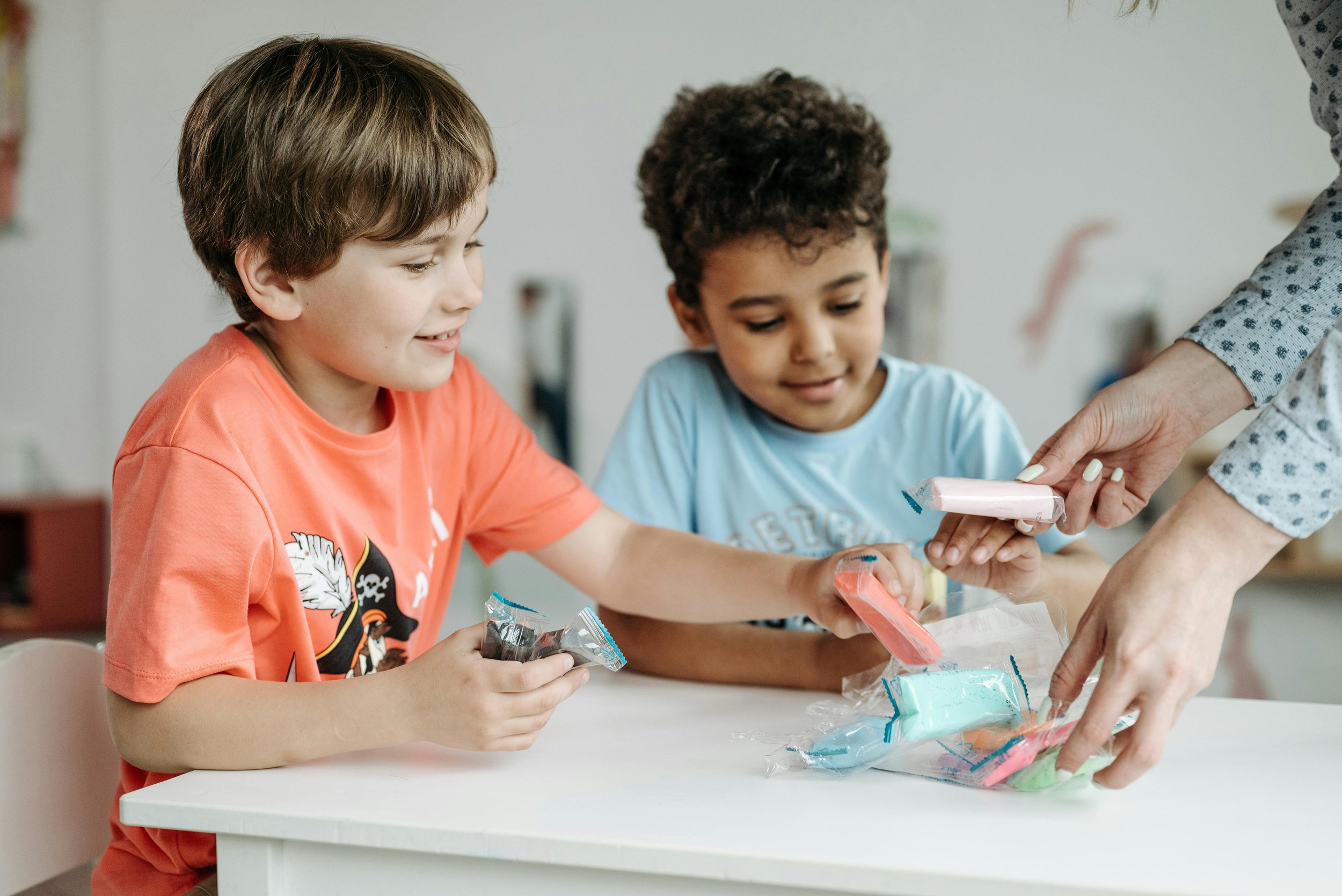How Do Child Psychologists Actually Help Kids? Here’s What They Do
When children experience emotional, behavioral, or developmental challenges, their families often feel overwhelmed and unsure where to turn. In these moments, child psychologists can be invaluable allies, but how do child psychologists work, and what exactly do they do to help? At the heart of their profession lies a combination of deep developmental knowledge, therapeutic expertise, and a compassionate approach tailored specifically to the needs of children.
At Wellman Psychology, our team of one of the Best Child Psychologist Chicago understands that early mental health care can transform a child's life trajectory. Whether it's addressing anxiety, supporting a child with autism, or helping a family navigate trauma, we provide individualized care designed to nurture resilience and growth. This article takes a comprehensive look into what child psychologists actually do, how they work across various settings, and why their role is more vital now than ever.
What Do Child Psychologists Do?
Child psychologists specialize in understanding how children think, feel, and behave. Their work involves the assessment, diagnosis, and treatment of emotional and mental disorders such as anxiety, ADHD, trauma, and behavioral difficulties. They use a variety of tools structured interviews, observations, and standardized psychological tests, to gather a complete picture of a child’s psychological state.
Beyond diagnosis, they engage in therapy, behavior planning, and family counseling. They might help a child manage social anxiety at school, guide parents through difficult developmental phases, or work with teachers to modify classroom strategies. Their approach is holistic, focused not just on symptom relief but also on long-term developmental health.
Common Job Titles
These professionals often work under several job titles, depending on their training and setting:
Clinical Psychologist
Pediatric Psychologist
Licensed Child Psychologist
Psychotherapist
School Psychologist
Each of these roles plays a part in supporting children’s mental health, but they differ in terms of the populations they serve and the environments in which they work.
How Do Child Psychologists Work?
Child psychologists work in a variety of settings, including private practices, hospitals, schools, community health organizations, and research institutions. Their approach is customized based on the child's age, condition, and support network. Sessions can be conducted in-person or online, depending on accessibility and the child’s comfort.
They often:
Meet regularly with children to conduct therapy sessions
Administer psychological and developmental assessments
Consult with parents, teachers, and doctors
Write detailed reports to track progress
Advocate for accommodations at school or in legal settings
Therapeutic modalities may include:
Play therapy for young children who cannot articulate their emotions verbally
Cognitive Behavioral Therapy (CBT) to help with thought regulation
Art therapy to process trauma and anxiety
Parent-child interaction therapy to improve dynamics at home
Whether they are addressing the social struggles of a child with autism or helping a teen cope with grief, child psychologists work with extraordinary sensitivity and adaptability.
What is the Role of Psychology in Children?
Child psychology is essential for understanding the complex interplay between a child’s development and their emotional or behavioral health. It helps identify whether behaviors are part of normal developmental phases or indicators of deeper issues.
Key Roles Include:
Monitoring Development: Psychologists detect delays or abnormal patterns in physical, emotional, or cognitive development.
Supporting Resilience: They help children build tools to manage stress, adapt to changes, and solve problems constructively.
Empowering Families: Through education and counseling, psychologists guide parents on effective parenting strategies.
Facilitating Communication: They provide children with a language for their emotions, allowing them to process experiences more clearly.
Preventative Care: Early psychological intervention can reduce the risk of more severe issues later in life.
Ultimately, the role of psychology in childhood is to create a foundation for lifelong emotional and mental health.
Daily Work and Skills Required
A day in the life of a child psychologist is diverse. One moment might involve testing for learning disabilities, the next may be spent in therapy with a child recovering from trauma. Their work is both emotionally demanding and intellectually rigorous.
Essential Technical Skills:
Psychological Testing and Evaluations
Therapeutic Intervention Techniques
Behavioral Planning and Management
Data Analysis and Progress Reporting
Research Design and Implementation
Core Soft Skills:
Empathy and patience
Clear, age-appropriate communication
Ethical decision-making
Cultural sensitivity
Creative problem-solving
Their success depends not only on technical ability but also on emotional intelligence and adaptability.
Why Is Child Psychology Important?
Childhood is a critical period where mental health patterns begin to form. According to the American Psychological Association, nearly 20 million youth in the U.S. have a diagnosable mental health disorder. Tragically, most do not receive professional help.
Conditions like ADHD, anxiety, and behavioral disorders often first appear in childhood. These issues are even more prevalent among children from low-income families, where access to care is limited. Ignoring these challenges can have long-lasting impacts, from academic failure to substance abuse or criminal involvement later in life.
But with early intervention, children can develop healthy coping skills, strengthen relationships, and regain control over their mental and emotional well-being. Child psychology matters because it gives children a voice and a pathway to thrive.
Child Psychologists and Developmental Support
1. Physical Development
Delays in motor skills may indicate neurological or muscular issues. Child psychologists observe these milestones and refer to specialists when appropriate.
2. Cognitive Development
From language learning to decision-making, a child’s thought processes reflect both nature and nurture. Child psychologists help identify strengths and address cognitive challenges early on.
3. Emotional Development
Understanding and regulating emotions is crucial. Child psychologists teach children how to process sadness, frustration, and fear and to build confidence and self-worth.
Special Focus: Autism and Disabilities
Children with autism spectrum disorder (ASD) often need specialized interventions to navigate social and communication difficulties. Child psychologists trained in ASD use approaches like ABA (Applied Behavior Analysis) and social skills training to promote independence and connection.
They also work with:
Intellectual disabilities
Developmental delays
Learning disorders
Physical impairments affecting mental health
Working closely with educators, families, and pediatricians, they help create Individualized Education Plans (IEPs) and ensure that children receive appropriate support in all areas of life.
Distinctions Between Related Roles
Child Therapist vs. Child Psychologist
Child Therapists typically hold master’s degrees and focus on providing emotional support through counseling.
Child Psychologists are doctoral-level professionals trained in assessment, diagnosis, and advanced intervention.
Child Psychologist vs. School Psychologist
Child Psychologists often work in clinical settings and focus on the treatment and evaluation of emotional and developmental disorders.
School Psychologists operate within educational systems, helping students succeed academically and socially while navigating learning and behavioral challenges.
Education and Career Pathway
Becoming a child psychologist involves a rigorous academic and practical journey:
Bachelor’s Degree in Psychology or related field
Master’s Degree (sometimes optional, but often necessary for specializations)
Doctoral Degree (Ph.D. or Psy.D.) with a child psychology focus
Internship: Typically one year of supervised clinical experience
Licensure: Includes passing the EPPP and possibly a state law exam
Postdoctoral Supervised Practice in states where required
Continuing Education: Ongoing training to stay current in the field
Career Outlook and Salary Potential
The U.S. Bureau of Labor Statistics projects a 6% job growth for psychologists through 2032, with approximately 12,000 new jobs added each year. The demand is particularly strong in schools, hospitals, outpatient centers, and private practices.
Salary Overview:
Average Annual Salary: $92,740
School Settings: ~$84,440
Government Roles: Up to $115,400
Work-life balance is attainable, especially for those in private practice who set their own hours.
Why You Should Care?
If your child is showing signs of emotional distress, learning difficulties, or social withdrawal, help is available.
At Wellman Psychology, we specialize in evidence-based, compassionate care that supports both children and families.
Our Best Child Psychologist Chicago are trained to address a wide range of developmental, behavioral, and emotional challenges.
We work collaboratively with schools, doctors, and community services to build a complete support system around each child.
Don’t wait, contact Wellman Psychology today to schedule a consultation and take the first step toward a healthier, happier future for your child.
Feel free to check out our social media links below:
Find out more articles that can help you below:






